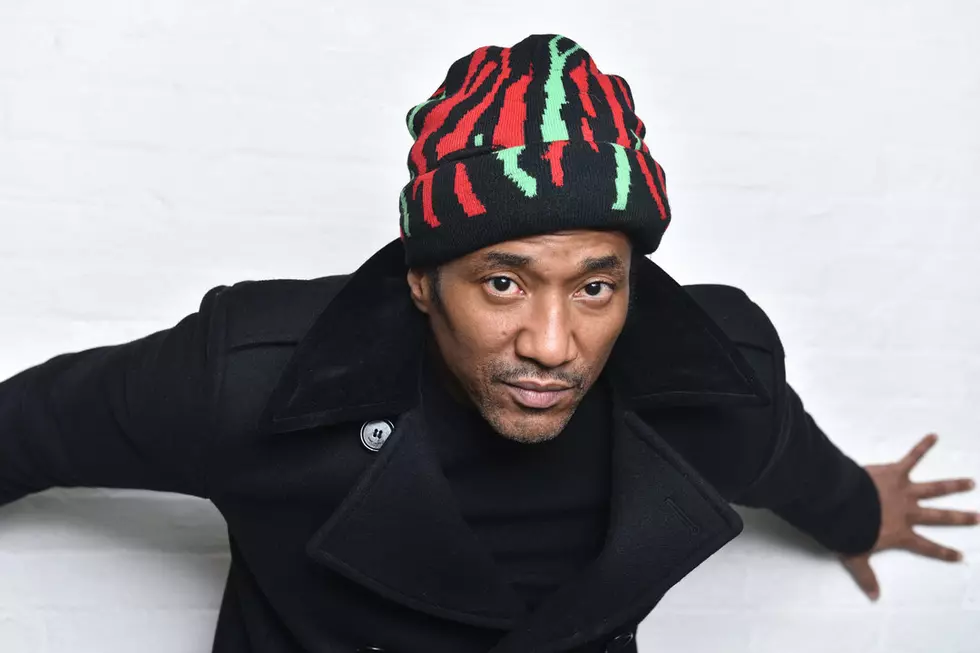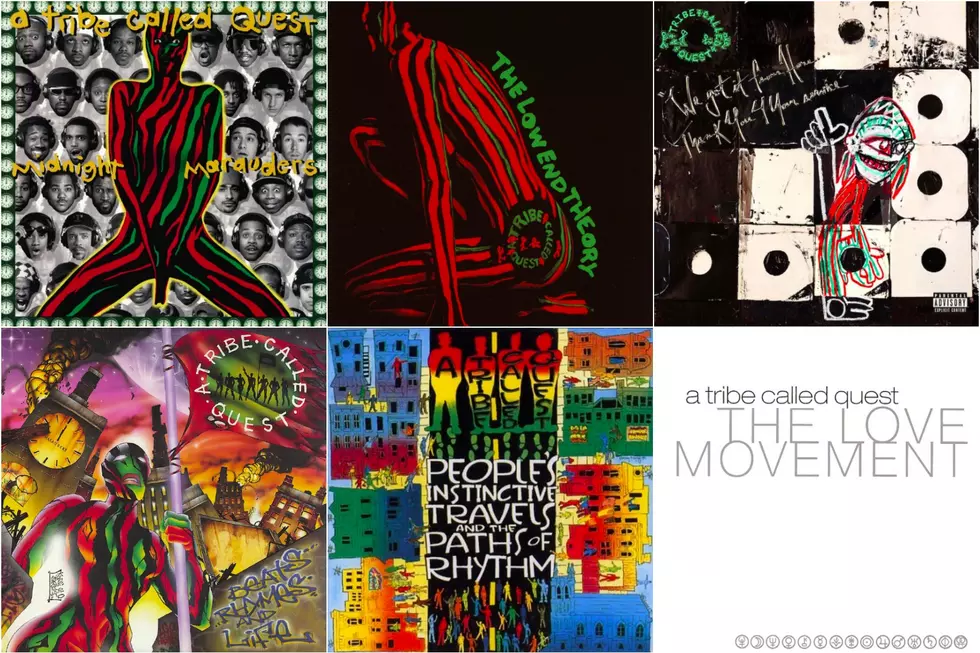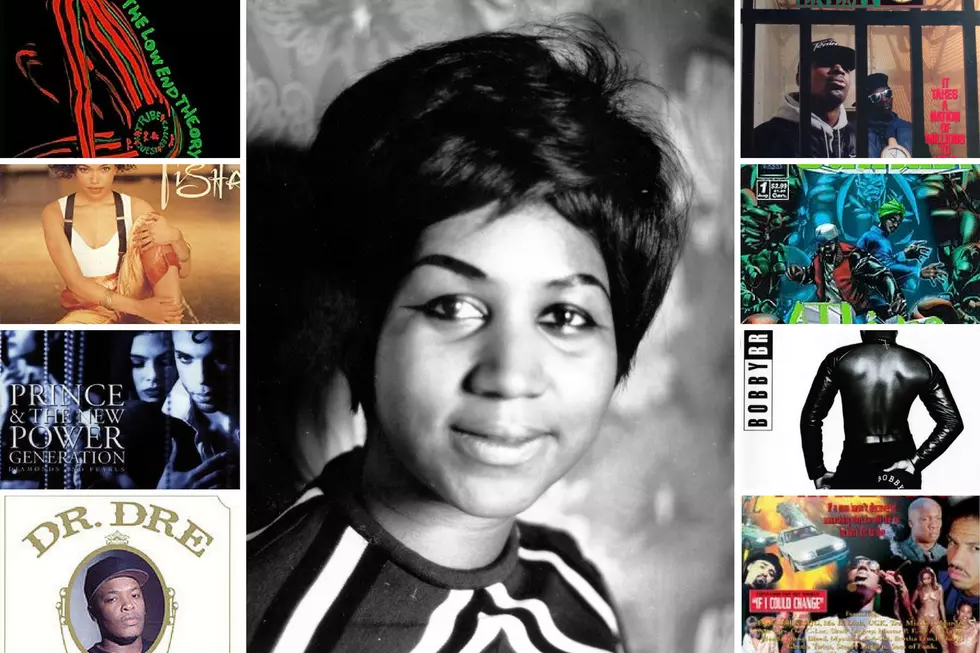
Q-Tip Talks Phife Dawg, The Jungle Bros and Dilla on Pandora’s ‘Questlove Supreme’
Q-Tip is the guest on this week's episode of Questlove Supreme, and the legendary frontman of A Tribe Called Quest reminisced and joked with Questlove and Phonte about his knack for sampling and loops, jazz records and the always-troubled history of A Tribe Called Quest.
Q-Tip also recalled what it was like mixing a recording for the very first time. In 1988, a teenaged Tip first got to work on The Jungle Brothers' debut album.
"The first record I ever mixed was Straight Out the Jungle," Tip says. "So it was me, and DJ Red Alert, and Tony D, and Mike, we actually mixed that record that was the first time.
"Red was like, 'So this is what you do, Tip. So these are the faders, so I already EQ'd it, we got it sounding right. So, we're going to do a couple of takes, and I want you to ride this up, and then when we hit this I need you to ride the next fader up, but don't bring it past this point,'" Q-Tip shared. "And he had the tape on it, 'Don't bring it past this point, and then after that I'm going to let you do one where if you want to do a different one, then you just do it different, but for the first couple.'"
Of course, that would only be the first of many great productions from Q-Tip, who would go on to form A Tribe Called Quest, and produce for fellow hip-hop icons like Nas and Mobb Deep. During the sitdown with Questlove and Phonte, Q-Tip also touched on the tense years in A Tribe Called Quest during the late 1990s. His fellow ATCQ member Phife Dawg passed away last year, and the group made a triumphant comeback album to pay tribute--but Tip remembers how awkward things got two decades ago.
"The Beats Rhymes and Life period, it was a odd time," Tip admitted. "It was a little dark, but this is because, I guess Phife and I were having our issues, and I converted to Islam, and then I met Dilla, and just meeting him was just like a bright spot, and bringing him in on the record, and I brought Consequence on the record, so I guess everybody started feeling threatened, and my whole thing was like, I was all just happy go lucky: 'No it's a Tribe, everybody can come on, yell hey!' I don't think everybody was feeling that. But I just wanted to be more expansive. I felt like the way that hip-hop was starting to shift, even though we weren't necessarily following the same course per se, I still wanted to put something in there that still represented a growth, if you would--or some sort of new elements, just we're changing in our own way at the same time that the genre is changing.
"So it was a lot of stuff that wasn't discussed, wasn't clear. People put us on this pedestal at the time, critically and all this shit."
More From TheBoombox









